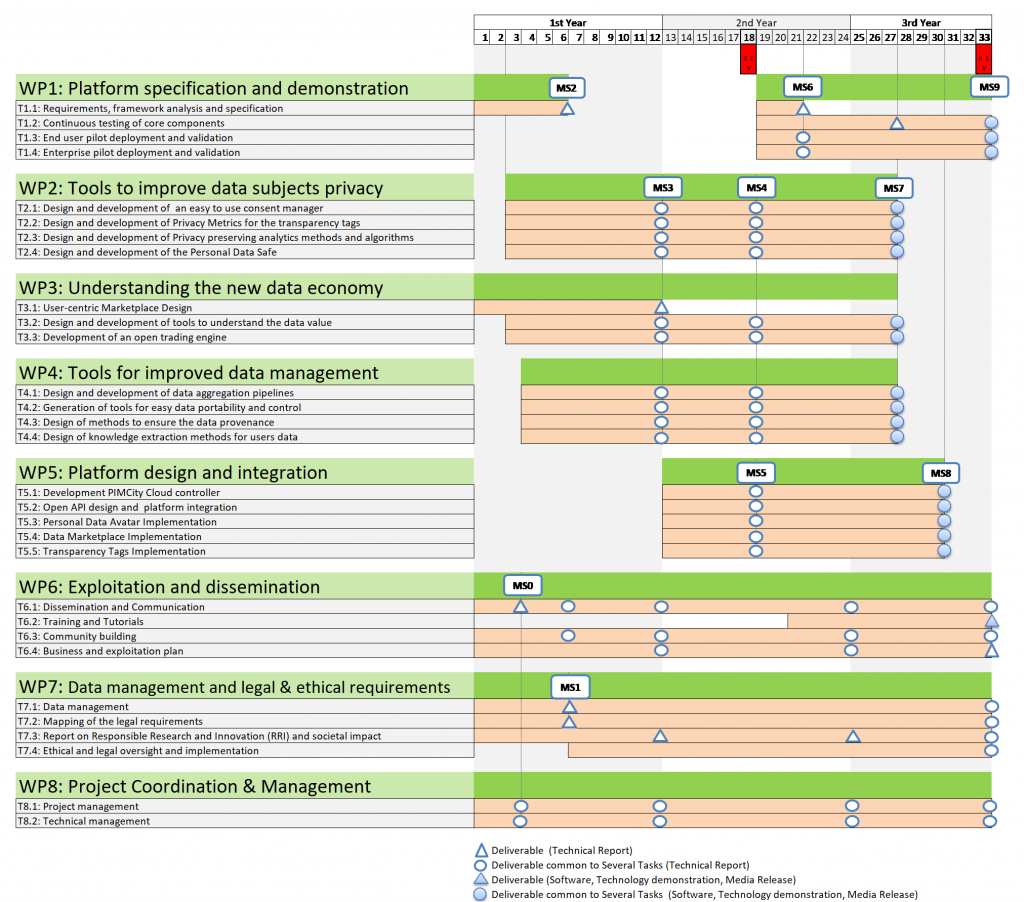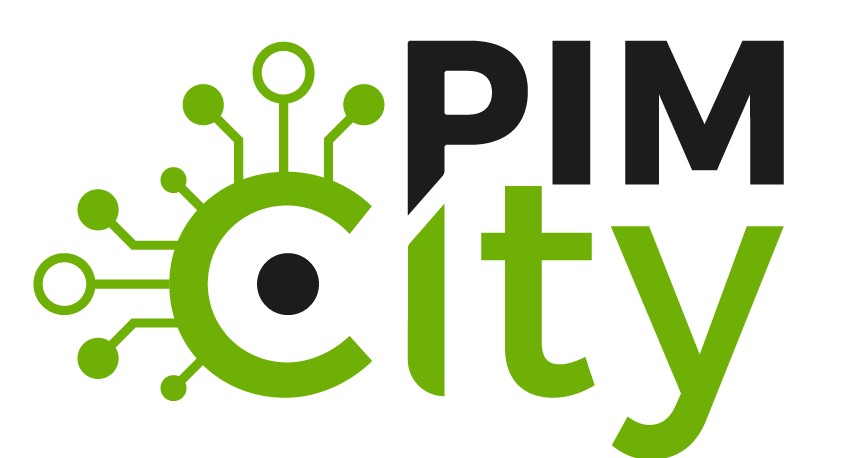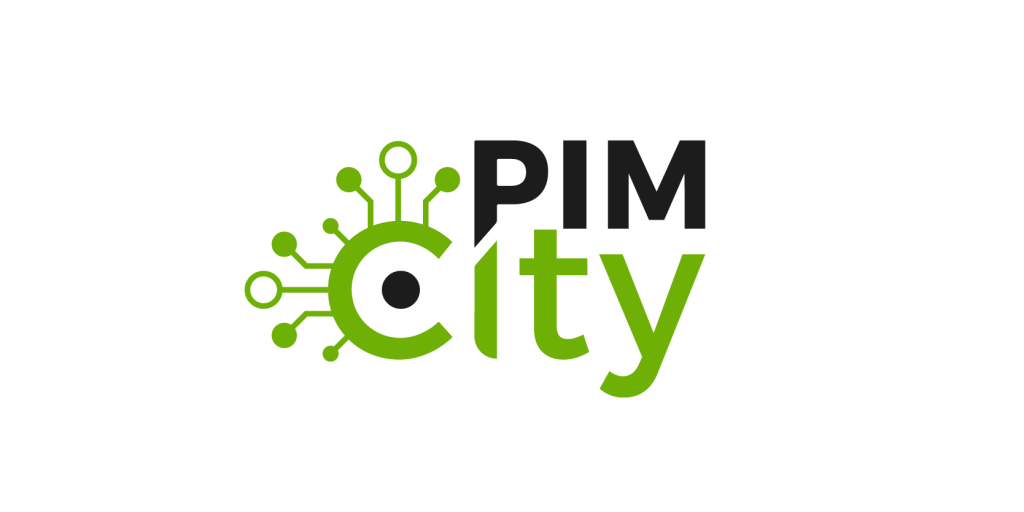OBJECTIVES



I. We will design, implement, demonstrate, and release the PIMS Development Kit (PDK), containing easy to use, interoperable, and portable software components that can be used for building new PIMS, or extending existing ones, quickly and inexpensively. Our components will cover common PIMS needs, i.e., consent management, data storage and management, data privacy, access control and revocation, privacy protection and privacy preserving analytics among others. Open API will allow access to components in a seamless manner.
II. We will build EasyPIMS, a fully-fledged PIMS for controlling, releasing, and monetizing web and mobility data. Through EasyPIMS we demonstrate how easy it is to combine off-the-shelf components from the PDK with a limited amount of ad hoc code to create fast and economically powerful real world PIMS.
III. We will integrate components from the PDK to the TAPTAP and WIBSON PIMS (already available in the consortium), and demonstrate how easy it is to extend existing platforms with new functionalities from our PDK
IV. Building on the technology produced within the project, TAPTAP and WIBSON expect to reach user bases of several hundred thousands of users in three years with 5x annual growing rate in the worst case. Such growth will attract the interest of data buyers involved whose number is expected to grow by a factor 10 in three years, and allow TAPTAP and WIBSON to reach millions of euros in revenue. In addition, we will bootstrap EasyPIMS by automatically importing user data from Telco providers, without requiring user intervention, mental effort, or time for anything but granting consent. For this, we will also carefully craft promoting campaigns, potentially based on monetary incentives via gift cards.
V. We will show how to further grow the user base of EasyPIMS by eliciting the help of its own users who will become the platform’s best advocates having found in it a wealth of valuable services including: enhanced personal data protection in compliance with GDPR; economic benefits through fair payments for use of their data by online services; “quantify self” analytics and intuitive dashboards that will use raw browsing, calling, and mobility data to inform users about their habits and help them lead a healthier life both online and offline. Offered analytics will help users answer questions like: do I walk enough each day? Do I get enough sleep? Am I socially connected or isolated? Am I receiving balanced news or am I trapped in a filter bubble?
VI. We will show how to build PIMS technology and business models that stay clear of privacy-related arms races by including and providing requirements from the beginning for all the stakeholders of the personal data ehavior ion ecosystem, including the end users (represented by AUI), the information collectors (represented by FW and Telefonica), the advertising sector (represented by IAB SP affiliates and TAP TAP), and the technology providers at the platform (represented by ERMES, TAPTAP and WIBSON), and machine learning/analytics services (represented by NEC, LSTECH, IMDEA, POLITO, UC3M), in perfect accordance to regulations and data protection best-practice (granted and checked by KUL).
VII. Improve citizens’ trust by enabling transparency and control over several platforms, using open and interoperable modules.
VIII. Allow for better value creation from personal and proprietary data – enabling small and mid-size players to use the technologies developed within the project.
IX. Accelerate and showcase important new ways to open up and realise a transparent data market for European citizens and industry.
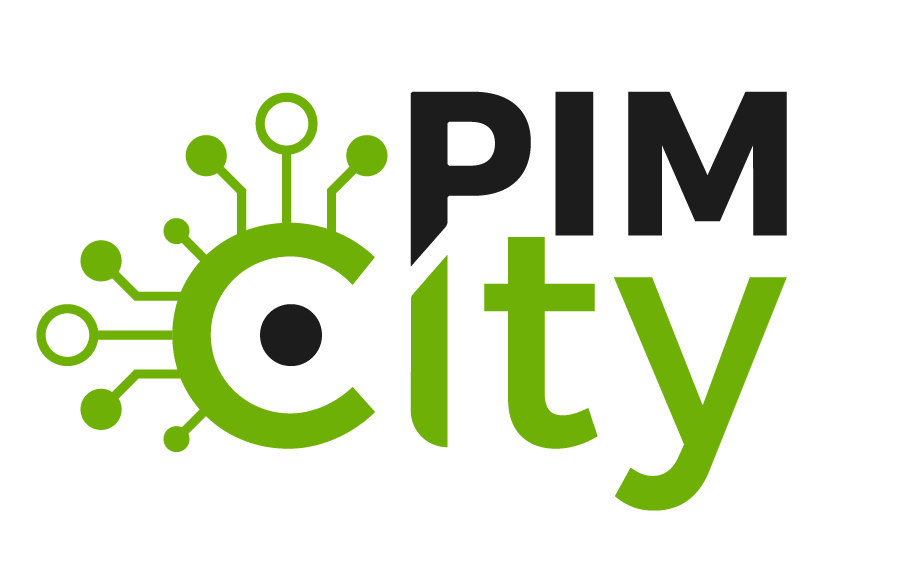
Expected Impact 1 - Personal data protection is improved, and compliance with the GDPR (and other relevant legislation) is made easier for economic operators
PIMCity contributes to this by providing reusable PIMS components specifically designed to be compliant with current legislative framework. The PDK build on all principles governing recent EU’s GDPR. Data subjects has been properly informed and data collection is based on the opt-in fundamental. The PDK allows existing businesses to exploit protected data by adopting or replacing components to achieve compliance.

Expected impact 2 - Citizens’ trust is improved as privacy-aware transparency and control features are increasingly streamlined across data platforms and Big Data applications
PIMCity will contribute to this by identifying and monitoring the key factors behind trust and confidence with respect to PIMS. These trust and confidence factors are operative UI/UX factors such as accessibility, usability, intuitiveness and conceptual factors such as data relevance, usefulness, and empowerment. PIMCity development will demonstrate transparency by providing open and auditable tools that do not hold captive individual user’s data.. PIMCity platform will contribute to building trust and confidence in digital data market and disseminating evidence on its benefits.

Expected impact 3 - Better value-creation from personal data
PIMCity will contribute to this impact by demonstrating that its privacy-aware and transparent approach allows industrial stakeholders to collect and extract value from user data in a transparent and rational way. PIMCity will build a compelling, evidence-based case for the industrial sectors to rework their competitive advantage and innovation capacity by rightfully engaging empowered and informed users in data operations and reducing costs of non-compliance.

Expected impact 4 - Increase of data providers, users, and stakeholders in data platforms
PIMCity will contribute to massively increase the popularity of such systems, and, thus, their adoption among users, data providers and stakeholders involved in the data economy. This claim is supported by four different business cases and involving five different industrial partners (TID, FW, TAPTAP, WIBSON and ERMES). By exploiting PIMCity as a platform or part of its outputs, these partners plan to increase their base of customers interested in PIMS services, and thus their revenues.
PROJECT DESCRIPTION
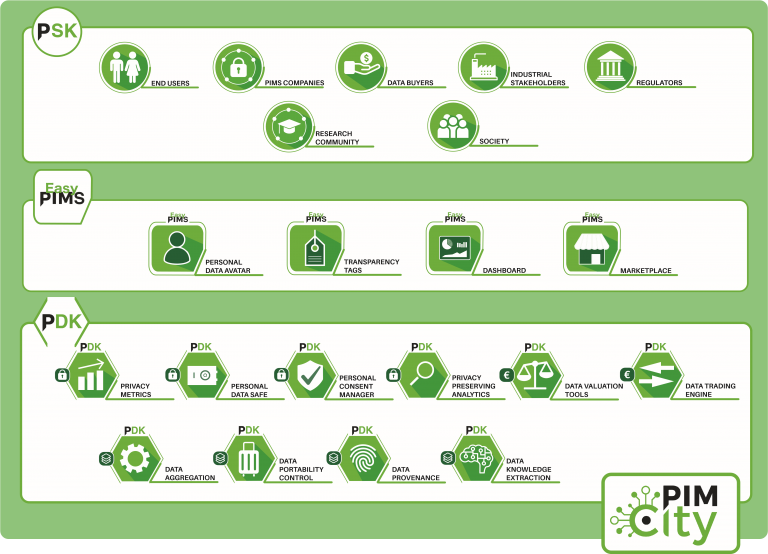
WORK PACKAGES
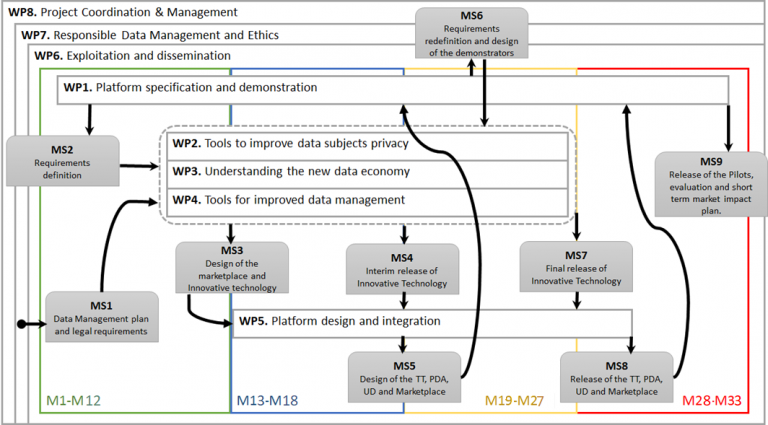
The aim of this WP is to explore user and stakeholder requirements, needs and expectations, and use this information to design and drive close to market demonstrators. To this end, the WP will:
- Characterise, research and map both the users and industrial requirements
- Deliver comprehensive technical and functional specifications building upon the framework requirements and constraints, which include normative, technical and business aspects.
- Design the evaluation strategy based on a series of interaction scenarios (pilots) and associated KPIs for validating, in an iterative way, projects assumptions and results.
- Design, deploy and evaluate a pilot involving internet users on pre-production environments.
- Design, deploy and evaluate a pilot involving companies on pre-production environments.
- Continuously test the core technological components in a relevant scenario.
The aim of the WP is to investigate tools to improve end users’ privacy. Machine learning algorithms will be investigated to define, quantify and control data being collected by online systems.
- Design and develop a system able to empower the users to control their consent settings in multiple account and services. It should have an easy to use interface and provide auto configuration options to make it easier for the users to configure complex scenarios by using aggregated/crowdsourced data of the different users to build a set of common profiles.
- Design the Privacy Metrics to i) unveil and communicate end users the data collected by online services, ii) automatically identify and pinpoint possible privacy violations in data collection, iii) communicate these findings to the end users in an easy and intuitive user interface.
- Develop a set of general-purpose building blocks to analyse users’ data without affecting their privacy. It will offer some algorithms and methodologies able to provide a certain level of anonymity using concepts as zero-knowledge proof or k-anonymity.
The objectives of this Work package are the following:
- Define the entities involved in the data market.
- Define the interaction between the different entities participating in the data market considering solutions of different nature ranging from centralized ones to smart contracts based on distributed block chain.
- Implement tools to provide estimations (from the market and the user perspective) of the value associated to individual users’ data.
- Design and implement a system, referred to as the trading engine that integrates the data broker into the data market ecosystem allowing it to sell end users’ data to interested third parties.
This WP aims to design and develop methods that enable users to import and integrate data coming from different sources and platforms. The users will be also capable of aggregating their data at different levels to protect their anonymity, and for sharing with other platforms and services without risk of violating their privacy. The project will leverage existing solutions to define a common and interoperable method for porting the user data and making them usable by other platforms, while users will be enabled to control the data usage and access.
In addition, machine learning methods will be investigated that will allow the platform to summarize and represent user data into different groups of profiles. These methods will facilitate the automatic extraction of data value, without user intervention, and while being generalizable to different types of user data.
Coordinator: Kleomenis Katevas – TID
The objectives of this Work Package are the following:
- Provide the technical platform which will both run EasyPIMS and make it easy for future components to be plugged into the system, thereby creating a fertile ground for experimentation from third parties.
- Design, document and implement open APIs and SDKs to ease integration between modules, and with future components from third parties.
- Design and develop an orchestrator that allows the execution and interoperability of the different building blocks in existing computing platforms like AWS
- Design and implement the EasyPIMS components (TT, PDA, Marketplace) and integrate them
The objectives of this Work Package are the following:
- Position PIMCity, its achievements and social impact, in the public sphere.
- Encourage discussion and uptake of PIMCity results in international forums where relevant scientific, industrial and policy stakeholders meet.
- Produce training materials aimed at facilitating adoption of results by end users.
- Deploying a community building strategy that contributes to ensuring societal relevance, acceptability and long-term sustainability of the solution.
The objectives of this Work Package are the following:
- Lay down the framework to ensure an acceptable PIMCity solution from a legal, ethical and data management point of view
- Provide a detailed overview of the legal and ethical requirements that are to be taken into account by the PIMCity project and EasyPIMS platform.
- Comply with data protection and privacy legislation – GDPR and the ePrivacy Directive/Regulation.
- Implement responsible research and innovation (RRI) as a cross-cutting theme,
- Follow all developments of the project to provide legal and ethical input and guidance
The objectives of this Work Package are the following:
- Define an effective and timely decision-making process for smooth running of project coordination
- Set up and manage a prompt and complete communication flow of technical and organisational information among participants
- Implement a continuous, time and resource aware, monitoring of project progress and budget expenditure to report progresses/deviations within the consortium and to the EC.
- Provide efficient administration of the project and day-by-day management to fulfil all contractual obligations towards the European Commission (EC) and among the project beneficiaries as established in the Grant Agreement and the Consortium Agreement
- Facilitate and encourage communication, moderate and mediate among the entities involved, including the EC, consortium members, centralising and supervising the communication with external collaborators
GANTT
